Spencer Group – Five Decades of Daring to be Different
Five decades ago, Spencer Group set out on a journey to create a business that would be at the forefront of a new movement in engineering – one which set aside dated ways of doing things and pushed for innovative, high-quality engineering solutions.
Spencer Group sought to recruit the strongest and most innovative project designers they could find alongside programme managers with industry-leading reputations for delivering safely and delivering well. The company inspired them to think differently, and to re-think the impossible – delivering projects ahead of schedule and within budget but with a combination of blue-sky thinking tinged with a hint of realism.
Track record
This philosophy has stood the test of time. Indeed, with the proliferation and advancement of technology, the company’s track record for delivering some of the country’s most challenging projects continues to grow stronger by the day.
Today, Spencer Group’s reputation as an ideas business founded on a robust and reliable delivery track-record is underscored by a number of infrastructure projects that are exceeding client expectations across the UK.
RailDirector caught up with Jon Bailey– Operations Director, who has joined the company following years of top-level contracting experience in some of the country’s biggest infrastructure businesses.
Jon said: “I joined Spencer Group in the midst of an unprecedented period due to the COVID pandemic. Having met Charlie and his leadership team, I was immediately struck by the difference in their attitude and thinking and by the unique culture for finding clever engineering solutions to the client’s challenges.
Whilst a lot of organisations were cutting back, Spencer Group continued to capitalise in new team members, training and development, and investing heavily in apprentices and the managers of tomorrow.
“Confidence in the business was justifiably high. Incredibly, by working collaboratively with a fantastic Network Rail team, Spencer Group had just successfully completed the complex Stevenage Turnback facility project one year ahead of the original planned opening.
Hailed as unprecedented by government and industry commentators alike, the team then went on to win a major project to refurbish the Union Chain Bridge spanning from Scottish Borders to Northumberland – an intricate scheme taking the 200-year-old suspension bridge apart component by component and adopting modern engineering solutions to restore the heritage structure it to its former glory.
“Hot on the heels came a major project to deliver Border Control Posts at Hull and Immingham for ABP, required as a consequence of Brexit. It became clear very quickly that Spencer Group was going to be the place to be in the next phase of my own journey, and I couldn’t be happier with the move I have made.”
Spencer Group’s legacy has seen the company – founded in the 1980s – deliver major projects in rail, highways, ports, bridges and in the energy sector. Often chosen for its innovation in design and the team’s ability to ‘make the impossible, possible’, the organisation has been entrusted with some of the most challenging major projects over the last decade.
The 15-day blockade that saw the company completely rebuild Gravesend station was a stand out project, alongside the installation of a new Chord in Ipswich that went on to win Best Large Project at Network Rail’s coveted Partnership Awards – with special mention for the company’s stakeholder and community engagement programme.
Platform extensions in Wessex, Access for All projects, depot upgrades across the UK, and a new station for Wokingham drew positive attention and plaudits from leading politicians, infrastructure owners, and train companies – all standing the business in good stead for other Department for Transport-supported projects that are now due to start nationwide.
Spencer Group is currently working in West Yorkshire on new station and station upgrade initiatives with local authorities and NetworkRail – projects that Jon believes are driven by the company’s inventive and collaborative approach.
“Recent times have tested us, and in doing so, they inspire ideas, engineer new realities and create a network of inspiration between stakeholders – from rail operators and principal contractors to suppliers and teams on the ground,” explained Jon.
“When we look back at the height of the COVID-19 pandemic, I am pleased to say there were moments of true collaborative greatness that played their part in instilling new ways of thinking in Spencer Group and the stakeholders with whom we work. This has paved the way for a range of new projects across the country, with people and organisations seeing Spencer Group’s points of difference.”
The Stevenage Turnback facility was a £30million package of works, designed to enable two additional trains per hour to operate between Stevenage and London King’s Cross.
The Spencer Group team built a 130m-long platform and installed circa two kilometres of new electrified track and signalling. The scale of the operation, and later the extra challenge of COVID-19, created something of a rallying call between the company, Network Rail, Govia Thameslink, and supply chain partners to really drive the project forward.
At times there were hundreds of specialist personnel involved, who had to be deployed safely and effectively during a series of sensitive and crucial blockades. However, despite this and the sudden need for social distancing and other new ways of working, the team was able to deliver the project a full year earlier than planned.
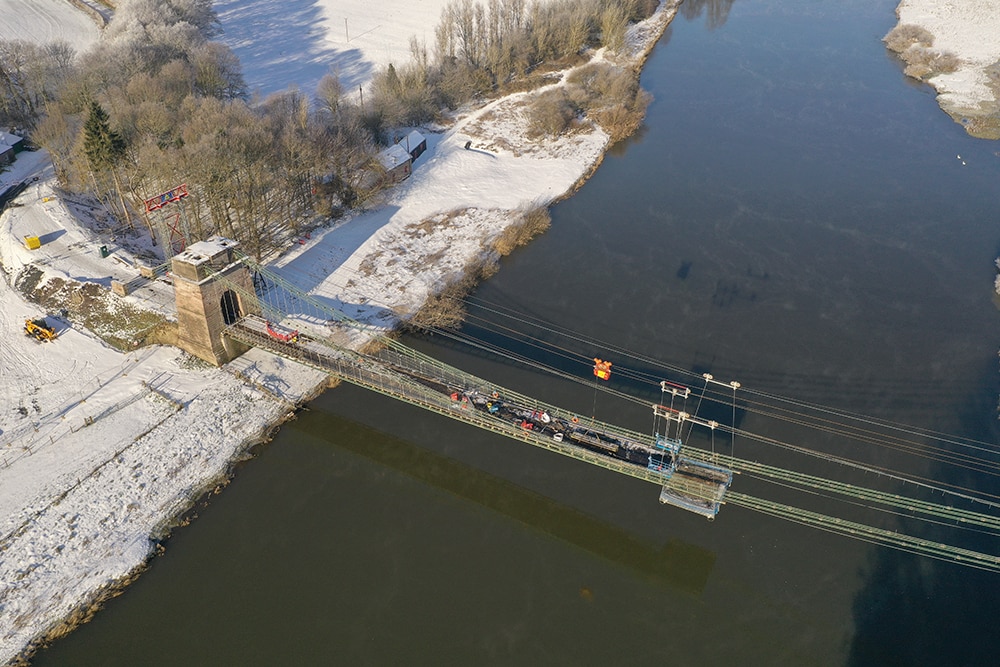
Investing in the business
Spencer Group has continued to further invest in its people and back-office infrastructure– building on the company’s track record of finding the right people and supporting them as they progress through the business.
In 2013, the company was the first engineering business in the UK to become an accredited Living Wage employer. The business is also building from solid financial foundations, with strong turnover and profitability in recent years and a very robust balance sheet giving the business major resilience, as the team aims to become the supplier of choice for projects up to around £50 million in value – described by Jonas being the company’s “sweet spot”.
“As well as the projects we now have in play, we also have a robust pipeline of work with customers recognising our points of difference in planning, design and safe delivery,” said Jon.“Our pipeline of work includes a number of projects closely aligned with Network Rail’s passenger-first improvement plans, which will see us working closely with local people and supply chain partners as we extend our reach with small to medium enterprises (SMEs), making a hugely positive socio-economic difference in the areas we serve.
“Our operating model has been created to design and manage our work centrally, delivering it locally as part of our ‘local people serving local people’ approach, with our own leadership teams embedded on the ground. Our aim is to become a positive force for good on a local level working with a strong SME marketplace. The socio-economic impact of getting this right is incredibly rewarding and very powerful.“
Spencer’s footprint has always been nationwide and overseas. Current projects include depot improvements at Neville Hill, Feltham, East Ham, Shoeburyness, Worcester and Tyseley.
“We’re also working with our partners in rail to build a new £22m station near the White Rose Shopping Centre, on the Leeds to Huddersfield line.“
Outside the rail sector, we have recently been working to protect and improve a number of iconic bridges throughout the UK, including the Forth Road Bridge, The Avonmouth and Severn Bridges and the Kessock Bridge.”
Yet the team at Spencer Group believe that future success is not guaranteed if you only look forward. They are of the view that you need to look back to appreciate where lessons have been learned and success emanated – as well as understanding what is working well in the present.
Only then is there the opportunity to prudently plan ahead and find answers to unlocking further engineering potential for its loyal band of customers. Solid foundations.
Jon continued: “Our business story started with our founder, and still CEO, Charlie Spencer. Back in 1989, Charlie realised a lot of work that was being done in civils and infrastructure was a one-size-fits-all solution. It is worth remembering that, back then, the word ‘innovation’ was not bandied around in the way it is today.“
As a company, the then C Spencer Ltd established that a “first-principles approach” was crucial to inspire new solutions. This resulted in new, sophisticated project designs that would ultimately simplify and improve how buildings and infrastructure worked for clients, saving them time and money.
“An important part of this approach was to look past the tender process and build meaningful relationships with customers. It was to understand, in their language, not just what they wanted but what the specific outcomes were.
“This outcome-based approach, setting aside all preconceptions, was what delighted customers of that time and formed the foundations of what would follow. Consequently, the business started working on its first rail projects for British Rail in 1990, building relationships that are still as strong today.
“Outside rail saw Spencer working on the first retracting footbridge in the UK, the first ship lift in the country, and developing innovative personnel-carrying “cable crawlers” that allowed us to scale and maintain suspension bridges.”
A greener future
Jon added: “By 2010, rail became a major player in a greener future. The crisis facing the environment is all too apparent now, but, even then, it was less so, and it was forward-thinking businesses like Drax and Port of Tyne who helped lead the way.“
Spencer Group was commissioned by these organisations to develop an expedient solution to offload biomass from ships entering South Shields and take it to Drax power station in North Yorkshire. As with all rail projects, it was important to maintain momentum –stopping and starting a train as it loaded was environmentally inefficient and cost too much time.
The Spencer team realised the best answer was simple: ensure the trains never stopped. The trains passed through the port, under a silo, and the grain unloaded from ships was poured on to the train from above.
“On arrival at Drax power station, it would be dispensed in a similar way – Spencer Group building specialised storage and material handling conveyors to complete the journey.
“This rail-centric solution to a cleaner, greener future would not have worked had it not been for a meeting of minds – Spencer Group, Drax and Port of Tyne developing a series of projects to get to the heart of the matter and develop the scheme in full collaboration from start to finish.”
On something this complicated, they had to communicate meaningfully, keeping constant track of all correspondence, personnel and documents via Spencer Group’s own collaborative cloud-based system called SOS (Spencer Online System) – a £5 million investment by the company to join everything up in-house with customers and supply chain partners. Stakeholders had a constant overview of all that was happening – allowing the Spencer team to carry out extensive possession works with everyone on the same page, as well as delivering complex rail infrastructure projects– such as recycling facilities for Network Rail, station refurbishments, overhead line work, platform extensions and depot construction.
This huge investment in IT infrastructure was another example of Spencer Group’s pioneering approach.
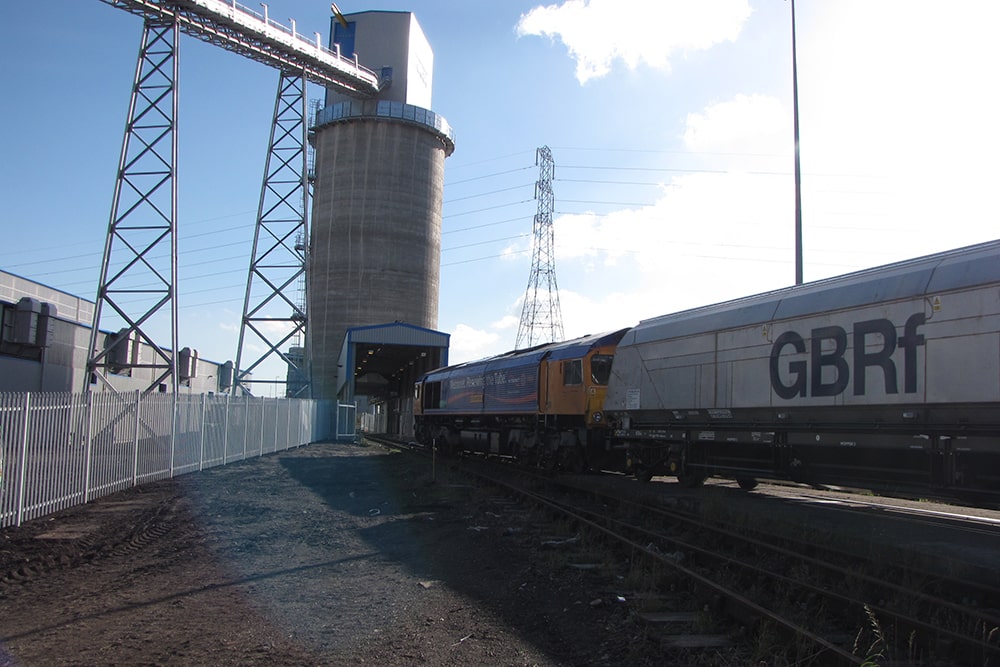
The present
“What keeps us successfully challenging convention now is a constant desire to expand on what worked before: strong communication and a willingness to look at an idea, developing it based on customer-determined outcomes rather than preconceptions.
“We build on this in a two-fold approach:developing new best practice standards whilst using the best in digital technology to create industry-leading information-sharing methodologies.
“Best practice is still grounded in longstanding relationships, just as it was in 1989. However, we now begin to develop those relationships much earlier in any given project. As soon as we have won the contract, we ensure all stakeholders are brought together to collaborate.
“We have found this creates a positive motivation for all involved, as they understand every requirement early on, feel fully integrated into the project and, crucially, understand the reasoning behind recommended approaches.
“It allows for far more efficient planning, but also the collective will to create a strong on-the-ground presence that can source locally where possible. We aim to use at least 70 per cent of local resources on all of our projects – both people and materials. We ensure everyone knows how to play their part and pool collective resourcefulness.
“Early collaboration also allows teams to concentrate on key performance outcomes, ensuring that we all have the same aims in mind when we begin work. SOS, our proprietary data system, has over the years matured into DataCow – a shared data and storage solution we are making available to help all SMEs. DataCow turns contracts into fast-flowing data, ensuring the proper overview of resources.”
As before, with SOS, every change to every document can be tracked, shared, or audited to protect firms and ensure accountability.
“We’ve been a paperless firm for at least ten years now, and our communication and information sharing is becoming even greener. On Stevenage, for example, data was shared and updated using XER Schedule Toolkit. This software provides easy-to-view programme metrics, from materials and staffing to design changes and schedule updates, available to the full project team in real time.
“This information, derived from planning data, was shaped to fit the understanding of the stakeholder using it. It was as if they were able to carry the whiteboard from the team briefing away with them and see it update as the day progressed on their computer, tablet, or phone.
“XER allows all costs to be tracked fully against projected outcome models, so if there is any change in the project, everyone can understand the effect on the bottom line for all involved.”
The future
“The future is about a lot of exciting things. Chiefly, it’s about caring for our planet through sustainable solutions and the latest technology, and it is about bringing the brightest minds into the industry.
“On site it means maximising waste recycling during the construction phase, and our Stevenage team did just that: diverting more than 90 per cent from landfill. We also ensure we use as much sustainable material as possible. On the same project more than 90% of timber we used was Forest Stewardship Council approved or equivalent sources.
“At our Head Office, we have embraced paperless working practices.Even our design team has turned from drawing boards to A3 graphics tablets to carry out work digitally. And when it comes to transport, we have installed 20 car charge points and invested in a fleet of Tesla Model three cars.
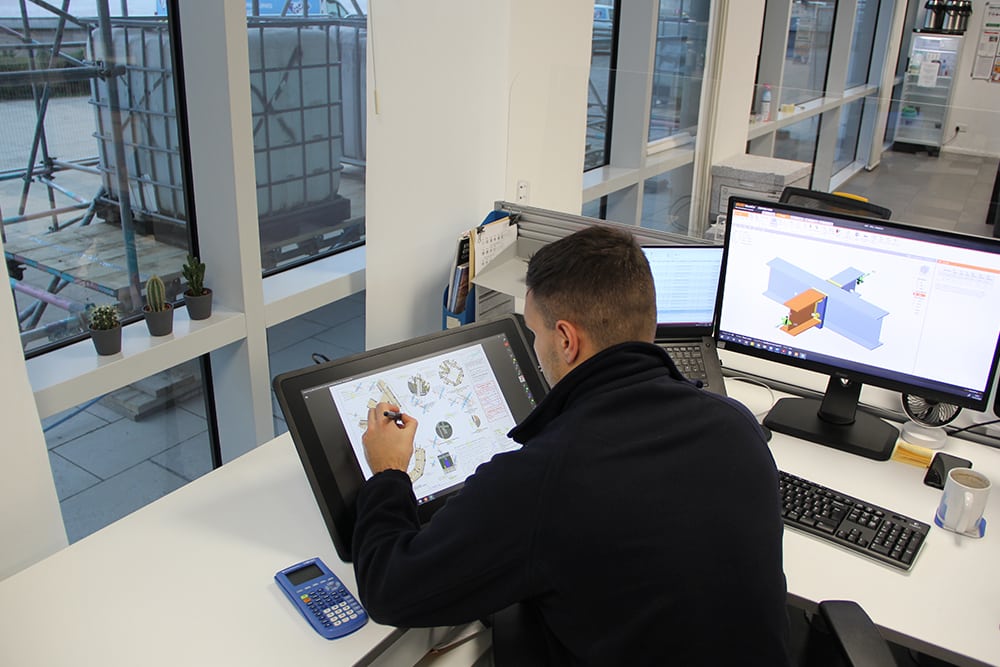
“What takes this improved environmental care, communication, and digitalisation into the future is a workforce building ever-stronger links to communities they hope to help and inspire.
“This involves replacing older ways of doing things. It involves moving faster and being more adaptable, but being aware that you have to make sacrifices to do so.
“The best and most cost-effective way to help customers and mobilise at short notice is to create a system driven by an agile, multi-skilled workforce. But it comes at the cost of old ways of thinking, not least certain artefacts of prestige. We reduced our regional offices, long considered a hallmark of ‘making it’, and instead put that resource into better networks of teams ready to go, as well as the resources to help them do so quickly.”
And these teams, when deployed, are done so in a way that integrates into the local community, boosting their economy.
“Engineering can disrupt an area, and we understand the importance of putting something back. At the heart of this, we ask that our people don’t take the easy option when staying away on a project, and instead consider using local bed and breakfasts or hotels. Rather than using a famous fast-food outlet for lunch, we tell them to consider a local cafe or sandwich shop.
“This approach, designed to create a better outcome for nearby communities, is also designed to improve diets and reduce stress in our own workforce. In short, the outcome is better for everybody.
“We measure this social value annually in the hope we can do better in the future. We take all expenses and evaluate which were used for purchases from major outlets and which helped the local economy. This analysis allows us to see where we can improve next year and build a pool of recommendations for new staff entering the area.
“Again, we see the essential combination of best practice and the technology to plan for better outcomes working together.
Inspiring the next generation
“Working with communities is one way I’m reminded that true change is, in fact, generational. As we hope to inspire our colleagues and the teams we employ to provide great solutions, so we are beginning to see our own apprentices returning to schools, as mature professionals, to inspire future engineers.
“It is something we take close to heart. Our future business success depends on inspiring potential new recruits with relevant technical and digital skills and the attitude to succeed. At Spencer Group, we’re committed to ensuring the next generation of talent has the resources and experiences to help them progress, which is why we became a Founding Partner of the new Ron Dearing University Technical College.
“Ron Dearing UTC is one of the most technologically advanced new schools in the UK, equipped with cutting-edge digital technology and state-of-the-art equipment, matching the very best in industry. Spencer Group was a hugely instrumental figure in the formation of Ron Dearing UTC, which opened its doors to students for the first time in September 2017. Spencer currently employs 19 apprentices and is employing a further nine from Ron Dearing UTC this month.
“If the next generation, savvy with digital technology and conscious of the environmental challenges which lie ahead, can come on board, rail will have a legacy to be truly proud of.”
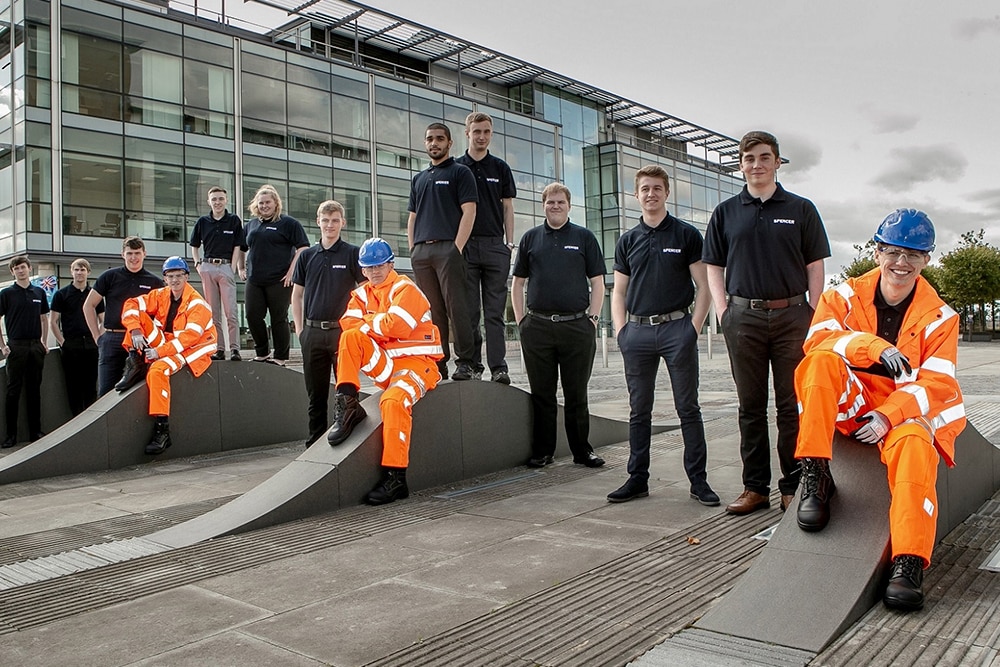
Photo credit: Spencer Group




























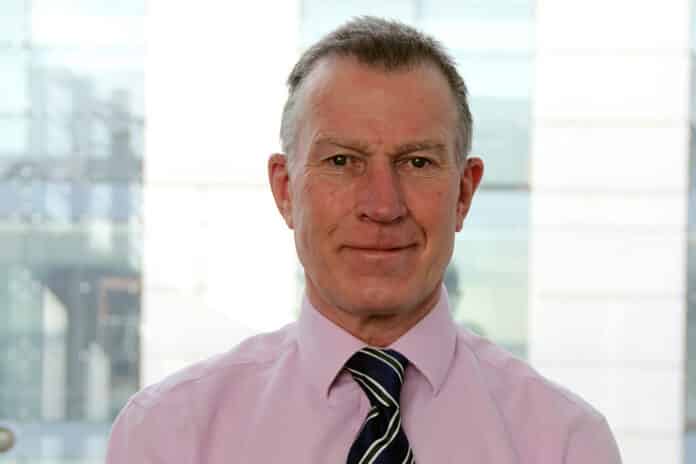






 0113 2082620
0113 2082620 info@railbusinessdaily.com
info@railbusinessdaily.com 15 Mariner Court, Wakefield WF4 3FL
15 Mariner Court, Wakefield WF4 3FL

